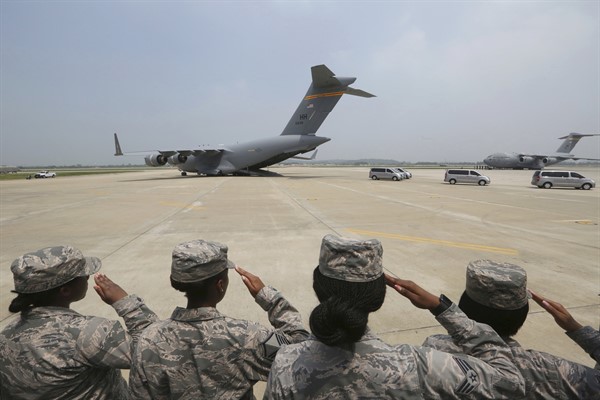Despite the U.S. military’s superiority, there are several reasons America could lose a future war: An enemy could exploit America's fraying security alliances or its domestic political rifts or develop a militarily decisive technology that the United States lacks. The critical question is how the United States would react.
Last week, I argued that while the U.S. military, the Pentagon and most national security experts expect that the United States will always win the wars it is forced to fight, America could in fact lose one if an astute enemy capitalizes on the nation’s weaknesses and vulnerabilities. I sketched out three ways that might happen: if an enemy found a way to drag out a war past the limits of American patience; if a nuclear-armed enemy invaded another nation and then dug in; or if an adversary used what security experts call “gray zone” aggression to present the United States with a fait accompli. But there are three other ways America could lose its next war, all of which expose how the country has become weaker politically despite its military dominance.
The first scenario might be if an adversary found a way to exploit geopolitics to its advantage. In today’s security environment, the United States is likely to fight a war far from home via long-range force projection—think the mostly air war against the Islamic State in Iraq and Syria, or the 2003 invasion of Iraq. America is more adroit at this kind of mobilization than any nation in history and constantly getting better. The U.S. military can strike targets anywhere on earth. But being able to strike enemy targets may not always be enough to win a war. To project decisive power to the far reaches of the globe and roll back military aggression, the United States needs local partners to provide bases, staging areas or at least transit and overflight rights. The 1991 Gulf War, for instance, would have been impossible without support from Saudi Arabia. The 2003 invasion of Iraq depended on bases in Kuwait. And the 2001 intervention in Afghanistan required the movement of personnel and supplies through Pakistan.

